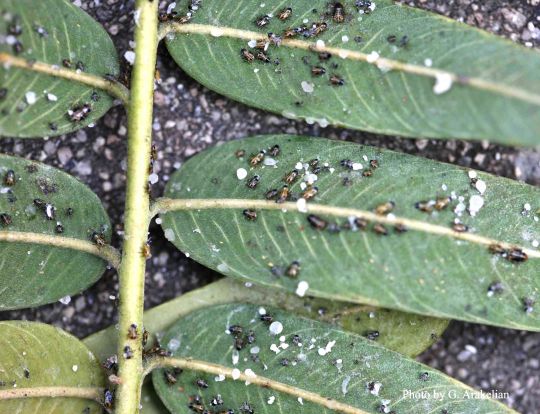Arbor-wellness: Tipu Psyllids
The “Tipu Tree” or Rosewood is widely grown as a landscape ornamental and shade tree in southern California. They are popular because they are drought and frost tolerant, are thornless, and have attractive clusters of bright yellow flowers. About twelve years ago, an exotic pest called the Tipu psyllid was found in San Diego county and has established itself throughout the region, causing damage every year by feeding on the leaves and dripping honeydew on the ground and objects below the trees.
Trees infected with the Tipu Psyllid often lose their leaves prematurely.
Both the larval nymphs and the adults feed on the young leaves and branches of Tipu trees. When present in large numbers, the leaves will curl and drop off. Both produce the honeydew (the sticky sap underneath the trees). When honeydew is present on the tree, a black sooty mold will also tend to grow and becomes one of the more obvious signs of the insect’s presence.
In South America, where the Tipu psyllid is native, there are insect predators that help to keep Tipu psyllid in check. Unfortunately, none of the insect good guys are established in Southern California. So, treatments are generally warranted when the insect has established itself in the area.
It is best to proactively treat Tipu trees during the winter or early spring to prevent these insects from establishing, but there are measures that can be taken during the spring and summer if an infestation is discovered.
Your Arborwell arborist can provide a program to identify and if needed treat your Tipu trees. Contact us today to set up an inspection!
